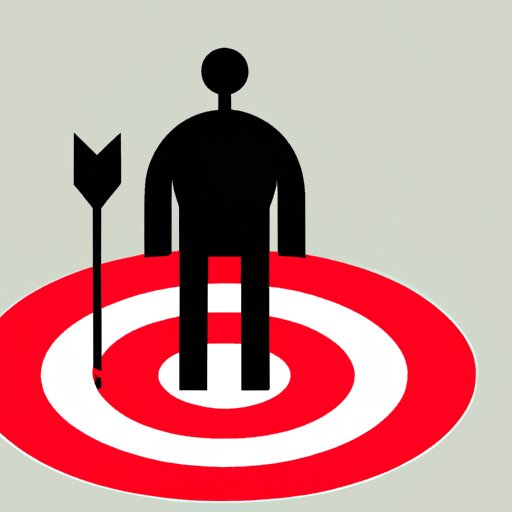I. Introduction
Personal development needs refer to the ongoing process of self-improvement to enhance one’s qualities, skills, and knowledge. These are unique to each individual and can include areas such as physical, emotional, spiritual, and intellectual growth. Addressing personal development needs is essential for leading a fulfilling life, as it enables individuals to realize their full potential and become the best versions of themselves.
It is crucial to understand the significance of personal development needs as they determine the quality of life and success in all aspects. The journey of personal development is not easy; it requires dedication, commitment, and hard work. However, by prioritizing personal development needs, individuals can achieve significant results and lead a happier, healthy, and more fulfilling life.
II. Defining Personal Development Needs: A Beginner’s Guide
Personal development is a continuous process that involves acquiring new skills, knowledge, and experiences to improve one’s personal and professional life. Personal development needs refer to specific areas of self-improvement that individuals need to address to enhance their quality of life and achieve set goals.
There are different areas of personal development, including emotional, intellectual, physical, social, and spiritual growth. Emotional development focuses on improving emotional intelligence, building self-awareness, and developing positive relationships. Intellectual development aims to expand one’s knowledge and skills through learning and development opportunities. Physical development involves maintaining good health, improving fitness, and personal grooming. Social development focuses on building healthy relationships, while spiritual growth focuses on developing values, beliefs, and a sense of purpose.
Personal development offers numerous benefits, ranging from improved self-awareness, increased confidence and self-esteem, better decision-making skills, and personal growth, amongst others.

III. Identifying Your Personal Development Needs: How to Get Started
The first step towards addressing personal development needs is identifying them. Self-reflection is an essential tool in identifying personal development needs. Take some time to reflect on your life, your strengths and weaknesses, and areas that you feel need improvement. This process can help you to pinpoint specific areas that require attention.
Other methods for identifying personal development needs can include seeking feedback from others, creating a personal development plan, consulting experts and mentors, or taking personality and skills assessments. Setting achievable goals is essential in addressing personal development needs, as it provides a roadmap and motivation towards self-improvement.
IV. Why Knowing Your Personal Development Needs Matters: A Deep Dive
Neglecting personal development needs can have numerous negative impacts on one’s life, such as poor interpersonal relationships, low self-esteem, missed opportunities, and lack of fulfillment, amongst others. Addressing personal development needs, on the other hand, leads to personal growth, which can have profound positive impacts on one’s life. Personal growth leads to increased self-awareness, improved confidence, enhanced decision-making skills, and problem-solving abilities.
Various strategies can aid in maintaining personal development, such as setting specific goals, practicing self-care, seeking feedback and support, and continued learning and development.
V. The Most Common Personal Development Needs and How to Address Them
Many personal development needs are common across different individuals. Common personal development needs include improving communication skills, developing leadership skills, building self-confidence, managing stress, and practicing self-care, amongst others. These areas can be addressed through various strategies, such as enrolling in training courses, practicing positive affirmations, seeking mentorship, or regularly practicing mindfulness.
Success in addressing personal development needs is achievable, as demonstrated by numerous success stories. For example, many individuals have transformed their lives and achieved significant goals by prioritizing personal development needs and implementing strategies that respond to their unique needs.
VI. Personal Development Needs: How to Build a Plan for Success
An action plan is essential in addressing personal development needs. A personal development plan provides guidance, motivation, and a roadmap towards achieving set goals. Building a personal development plan can involve identifying specific goals, breaking them down into manageable steps, and setting deadlines and timelines for achieving them. It is also essential to ensure that goals are realistic and achievable and that you monitor and adjust your progress regularly. Staying motivated is crucial in achieving success in personal development, and some tips for motivation include seeking support and accountability, tracking progress, and celebrating milestones.
VII. The Role of Personal Development Needs in Achieving Career Goals
Personal development needs intersect with career development as they’re critical in determining one’s career success. Addressing personal development needs can improve work ethic, communication skills, problem-solving abilities, and collaboration. Besides improving work-related outcomes, personal growth also brings personal fulfillment and job satisfaction.
Career success stories are often linked to personal development needs. Many successful individuals have attributed their success to prioritizing personal development needs and implementing strategies that promote personal and professional growth.
VIII. Taking Action: How to Overcome Barriers to Personal Development Needs
Common barriers to addressing personal development needs can include fear of failure, lack of motivation, insufficient resources, and time constraints. Overcoming these barriers can be challenging but achievable. Some strategies for overcoming barriers can involve setting achievable goals and taking small steps, cultivating a positive attitude towards change and learning from mistakes, seeking support and motivation, and utilizing resources creatively.
Maintaining personal development requires an ongoing commitment to the process, and it is essential to realize that setbacks are a natural part of the journey. Consistency and resilience are critical in overcoming obstacles and moving towards personal growth.
IX. Conclusion
Personal development needs are essential for leading a happy, fulfilling, and successful life. By identifying personal development needs, building an action plan, and overcoming barriers, individuals can achieve significant results. The journey of personal development requires patience, commitment, and hard work, but the benefits are worth it. Prioritizing personal development needs can lead to significant personal and professional growth and provides numerous rewards.
(Note: Is this article not meeting your expectations? Do you have knowledge or insights to share? Unlock new opportunities and expand your reach by joining our authors team. Click Registration to join us and share your expertise with our readers.)
